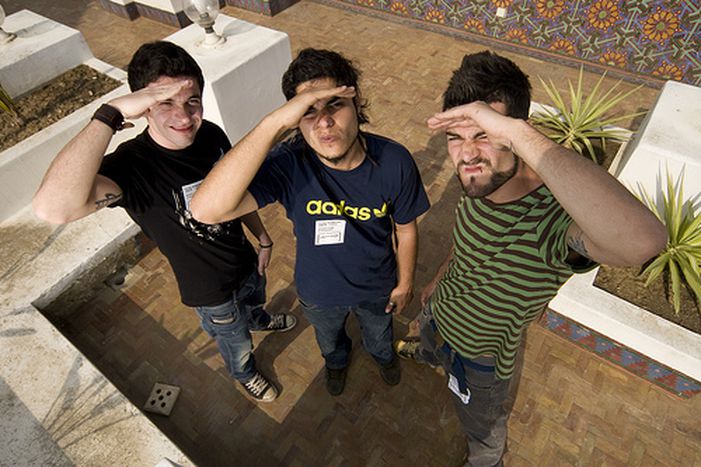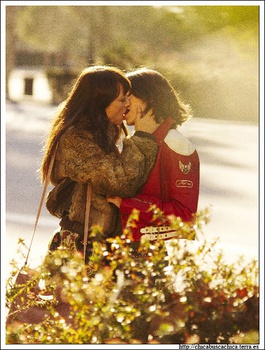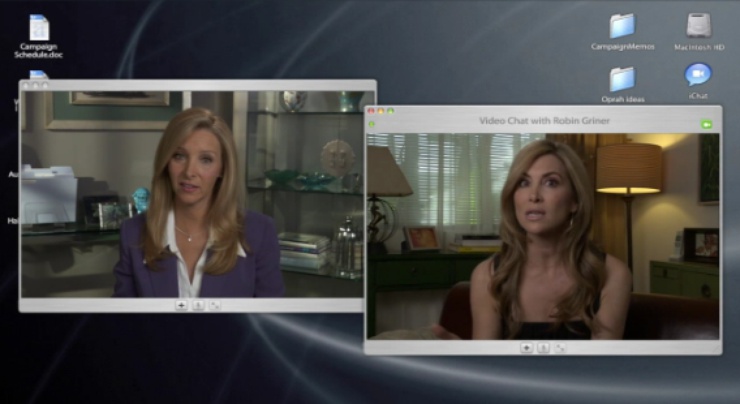
Malviviendo vs Lisa Kudrow? The rise of EU web series
Published on
Translation by:
James FrisciaOn 21 April, the UK screened US web series 'Penelope Princess of Pets' on Channel 4, whilst the former Friends actress has found success via the internet. Since 2007, young filmmakers in Spain and elsewhere are exploring formats in the competitive audiovisual world, boasting a more innovative, transgressive spirit than their TV counterparts
'They call me black.' This line kicks off one of the most recent web phenomena in Spain. It is the opening phrase (and title) of the first episode of a web series which cost40 euros (£35) to make in November 2008. Malviviendo ('Living Badly') was written by a group of young audiovisual communication graduates from the University of Seville. 18 months later, very few young (and not so young) Spanish speakers would not know about the adventures of Black, Khaki, Lefty and Scab. Malviviendo's reputation is so widespread that the tenth episode will have its protagonists travel to various Spanish festivals and venues so that the shows’ followers can see a 'real' live premiere the likes of Lost or House.
Web series: not just a Spanish phenomenon in Europe
 Raw comedy, obsession with sex, experimentation with drugs and 'buddies' hanging out, along with continual homages and references to series and movies ‘made in USA’, are the keys to the success of this irreverent creation. But Malviviendo is no pioneer in this regard nor the first of its genre. Apples and the lesbian award-winning show Chica Busca Chica ('Girl Meets Girl') were two 2007 web shows devoted to female characters.
Raw comedy, obsession with sex, experimentation with drugs and 'buddies' hanging out, along with continual homages and references to series and movies ‘made in USA’, are the keys to the success of this irreverent creation. But Malviviendo is no pioneer in this regard nor the first of its genre. Apples and the lesbian award-winning show Chica Busca Chica ('Girl Meets Girl') were two 2007 web shows devoted to female characters.
Nor is this an an indication that the web series phenomena is something exclusively Spanish. There are dozens of online successes across the old continent with similar premises and the same innovative and transgressive spirit. With live or animated characters, they all seem to have something in common: because of their harsh language, raw images or the indecency of their plots, they tell stories we would never see on television. So only by hopping on the web do we find web series like Hello Geekette, a French series with a low budget but great imagination, or They call us candy girls, which has become the German Sex in the City.
Could EU web shows reverse American series monopoly?
To what is their success due? Are young Europeans eager for new formats? Will these storylines one day result in an American monopoly? These questions are difficult to answer at face value, but we will get our answers whenever the 'lords of television' dare to invest in discovering this young talent. Web series creators have shown their capacity to make something from nothing, with laughable budgets and the simple enthusiasm characteristic of people who launch themselves blindly into audiovisual media. It is a similar phenomenon to the amateur shorts that have served as a training ground for talented young European filmmakers for decades. Every one of these series has its own site where it is possible to view episodes, share opinions with other fans, or even make donations to support further production of the series (do not forget that in these types of productions, no-one earns a euro).

There are also those who have dared to go even further at the root of this phenomenon. Online channels are dedicated solely to web series with animated or live characters. In the US the second edition of the 'Streamys', the 'Oscars for the internet', took place in LA on 11 April, whilst in Europe, the online Spanish channel nikodemo.com organised the first international festival of pilot episodes of online series. It is a contest in which they will look for new talent for their channel, with attractive prizes to turn the winning pilot into a real web series and which will be judged by, among others, the directors Isabel Coixet, Mar Coll and Nacho Vigalondo. Meanwhile, the Malviviendo boys have avoided 'selling out', rejecting terrestrial offers to win one of the most important videoblog awards, the BOBs ('Best of the Blogs') in March 2010.
Translated from Series web: internet se convierte en escaparate de lo políticamente incorrecto



